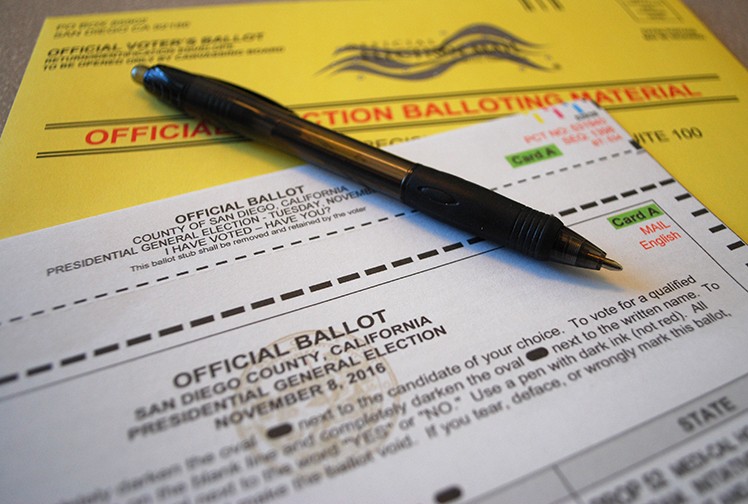
As is true of so many ideas in the public policy arena, the question of whether ballot harvesting should be allowed is filled with nuance and is not a black and white issue.
The idea is not a partisan one. After all, predominantly Republican states such as Texas and Utah have ballot harvesting. So do predominantly liberal ones, such as Oregon and my home state of California.
All nuance aside, the tension here in the Golden State over the issue of ballot harvesting is palpable. On the one hand, no voter should be disenfranchised and prevented from casting his or her ballot, especially due to age or disability. On the other hand, the prospect for fraud is real and legitimate.
Three months after the 2018 mid-term elections, there continues to be much hand wringing in California GOP circles about the practice of ballot harvesting, as perhaps there should be when a state Congressional delegation loses half of its membership. But allegations about fraud in this area remain unproven. And while individuals are of course entitled to their opinions, conservatives in California and other states where ballot harvesting is legal would be better served by raising money to take better advantage of this new voter outreach tool.
Conservatives should work to do everything possible to improve the current harvesting system.
Beyond that, conservatives should work to do everything possible to improve the current harvesting system. For instance, ballot harvesters could not only be certified and trained by county election offices to collect ballots, but also be required to wear identification badges, as well. There could also be citizenship requirements, or requirements that harvesters be registered to vote in the county where the ballots are collected. Further, country registrars could be required to call or mail absentee voters during the canvassing period following the election to ensure that their ballot was collected and submitted by the harvester who collected it. If the individual didn’t vote, the ballot could be disputed.
Finally, to further limit potential fraud, a harvester could be permitted to only collect up to 10 ballots per election cycle. Texas and Colorado have a similar restriction, and it is a far preferable solution to California, where, under AB 1921, an unlimited number of ballots per person are allowed to be turned in. In the last election, one harvester in Orange County submitted over 200 ballots at one time. Clearly, that doesn’t mean those ballots were collected fraudulently. But this restriction would minimize the risk of this occurring.
Voter turnout was dramatically higher in California in November, and ballot harvesting had at least something to do with it. In fact, the 64% registered voter turnout was the highest in a mid-term election in the state since 1982. This should be celebrated — as long as it is accomplished legitimately. Unfortunately, California election law over the last decade has had a tendency to take good ideas that increase voter participation and distort them into something unworkable.
The 64% registered voter turnout was the highest in a mid-term election in the state since 1982. This should be celebrated — as long as it is accomplished legitimately.
Obviously, it occurred with ballot harvesting. But it’s also occurred with legislation approved in 2014 that allowed absentee ballots to be received up to three days after the election, as long as they were postmarked on Election Day. Prior law said that ballots needed to be received at the County Registrar’s office by the time the polls closed on Election Day. The bill came in response to 150,000 ballots in one county not being counted that were otherwise legitimate. In theory, it’s not a bad bill. If you mail your ballot by 5:00 pm on Election Day, it should count. However, the legislative bill took the idea too far by saying ballots would still be counted if the postmark was illegible, or if it didn’t have a postmark at all.
Regardless of political persuasion, no one wants to see voters disenfranchised. But unless voter integrity is protected, California runs the risk of making a mockery out of its voting system. We’ve already seen this at the DMV, where individuals are automatically registered to vote unless they specifically opt-out, leading in some cases to non-citizens being registered to vote. Safeguards must be taken to ensure every legitimate vote is counted and the chain of custody for absentee ballots is preserved. This clearly hasn’t been done with ballot harvesting in California.
David Wolfe is the President of Well Versed Consulting, a lobbying and marketing firm based in Sacramento.




